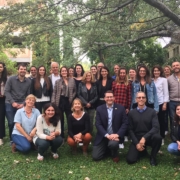Collaborative Divorce: What Does A Facilitator Do?
In a Collaborative Divorce, the Facilitator plays a crucial role in keeping everyone on task, aiding communication, managing emotions between you and your spouse, and, where applicable, tailoring a parenting plan for your children. A Facilitator is a professional who is licensed under Chapter 490 or 491, Florida Statutes. Here are some specific tasks they might undertake:
1. Project Management:
Facilitators are the project managers of the Collaborative Process. Without a clear direction, divorce negotiations can get off track real fast. The Facilitator keeps you and your lawyers focused on your interests rather than positions, works so that we are making the most efficient use of your time and money during team meetings, and checks in to see whether everyone has completed the tasks assigned to them.
2. Emotional Support:
Facilitators provide emotional support to both you and your spouse throughout the Collaborative Process. Divorce can be a highly stressful and emotional experience, even under the best of circumstances, and having a trained professional to talk to can be invaluable.
3. Communication Facilitation:
They help facilitate communication between the you and your spouse, ensuring that discussions remain productive and respectful. This can include helping each each of you express your needs and concerns effectively and ensuring that you both feel heard and understood.
4. Conflict Resolution:
Even though we try to keep things as amicable as possible, it is still divorce. It is still tough. When conflicts arise during the Collaborative Process, Facilitators help you and your spouse work through them constructively. They will use techniques such as helping you focus on the future rather than the fights of the past and spot-lighting your most important goals to help you find mutually acceptable solutions.
5. Co-Parenting Support:
If you and your spouse have children together, Facilitators can provide guidance and support on co-parenting issues. They may help you develop a Collaborative Co-Parenting Plan that prioritizes the well-being of the children and fosters healthy communication between you, the parents, even after the divorce is over.
6. Referral to Additional Services:
A Facilitator may also refer you and your spouse to additional services or resources as needed, such as individual therapy, parenting classes, or financial counseling.
Overall, Facilitators in a Collaborative Divorce serve as a neutral third party who helps you and your spouse navigate the emotional and interpersonal challenges of divorce and, if applicable, focus on your children in a constructive and amicable manner. If you want to learn more about how Collaborative Divorce is a more human way to resolve family law issues, contact a Collaborative Professional.
Adam B. Cordover is co-author of an American Bar Association book on Collaborative Family Law. He is a member of the Board of the International Academy of Collaborative Professionals and recipient of the Inaugural Visionary Award of the Florida Academy of Collaborative Professionals. Adam represents clients virtually throughout the State of Florida and has offices in Tampa, Saint Petersburg, and Sarasota.








